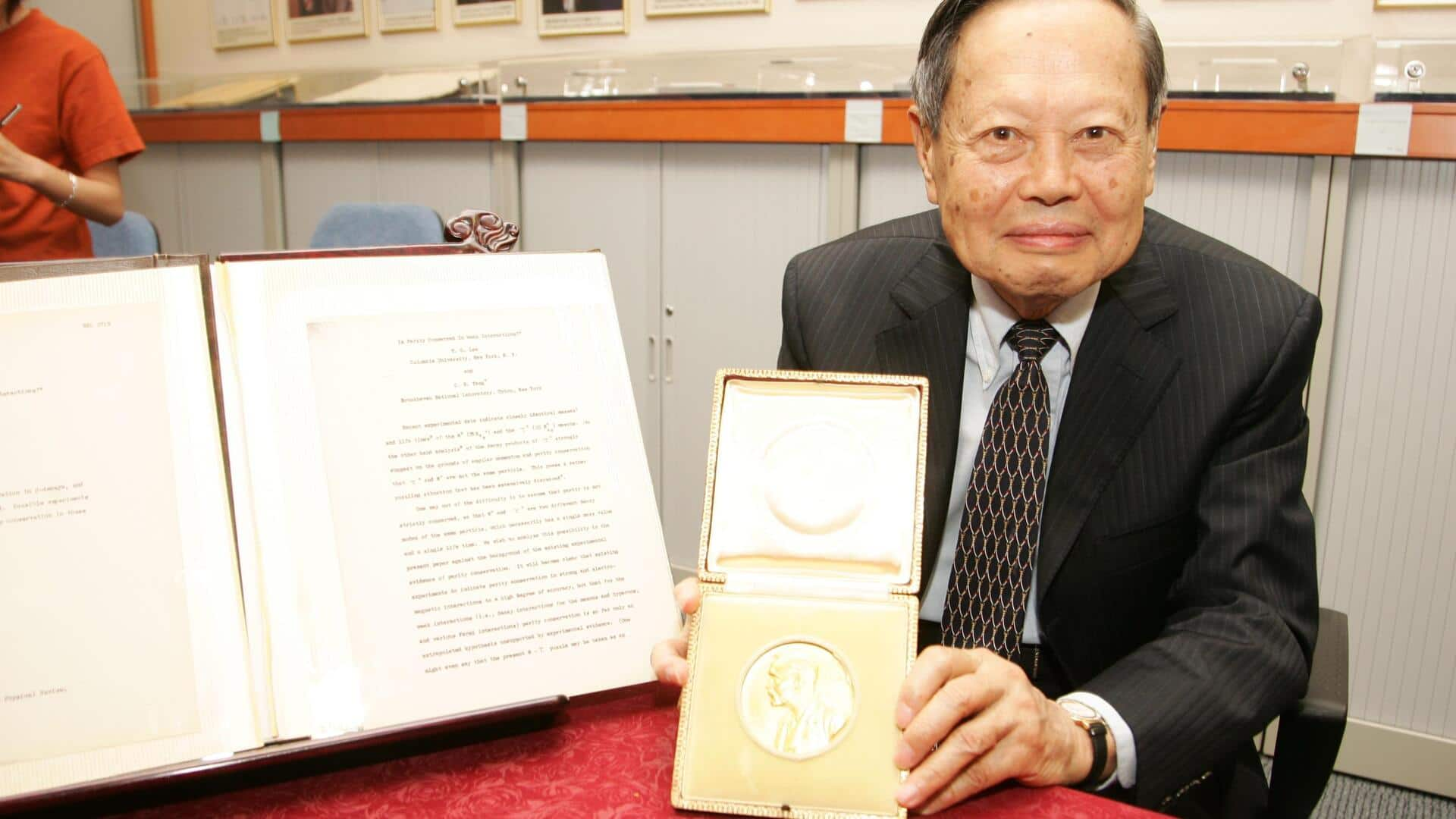
Chen Ning Yang, Nobel-winning Chinese physicist, passes away at 103
What's the story
Chen Ning Yang, a Chinese-American physicist and Nobel Prize winner, has died at the age of 103. His demise was reported by Chinese state media outlet Xinhua. Yang was awarded the 1957 Nobel Prize in Physics with Tsung-Dao Lee for their groundbreaking work on parity laws, the fundamental principles governing the behavior of subatomic particles. Their research challenged long-held beliefs about mirror symmetry in particle physics.
Background
Early life and education
Born in 1922 in Hefei, Anhui province, Yang grew up on the campus of Tsinghua University, where his father was a mathematics professor. After completing his undergraduate and master's degrees at Chinese universities, he moved to the US post-World War II on a fellowship from the University of Chicago. There, he studied under Italian-American physicist Enrico Fermi, known for creating the world's first artificial nuclear reactor.
Achievements
Career highlights
Since 1949, Yang was associated with the Institute for Advanced Study at Princeton University, where he became a professor in 1955. He worked in various fields of physics but had a special focus on statistical mechanics and symmetry principles. His work earned him several accolades, including the Albert Einstein Commemorative Award in 1957 and an honorary doctorate from Princeton University in 1958.
Personal journey
Personal life and legacy
Yang married his first wife Chih Li Tu in 1950, with whom he had three children. After her death in 2003, he married Weng Fan, a woman over 50 years younger than him. The couple first met in 1995 during a physics seminar and later reconnected in 2004. Yang's work has left an indelible mark on the field of physics, influencing generations of scientists worldwide.